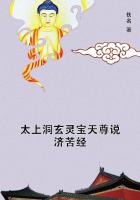A remarkable example of descent mythically claimed from one of the lower animals is noted by Otfried Muller. Speaking of the swan of Apollo, he says, "That deity was worshipped, according to the testimony of the Iliad, in the Trojan island of Tenedos. There, too, was Tennes honoured as the of the island.
Now his father was called Cycnus (the swan) in an oft-told and romantic legend. . . . The swan, therefore, as father to the chief hero on the Apolline island, stands in distinct relation to the god, who is made to come forward still more prominently from the fact that Apollo himself is also called father of Tennes. Ithink we can scarcely fail to recognise a mythus which was local at Tenedos. . . . The fact, too, of calling the swan, instead of Apollo, the father of a hero, demands altogether a simplicity and boldness of fancy which are far more ancient than the poems of Homer." Op. cit., i. 34.
Scholiast on Iliad, xix. 119.
Aelian, H. A., xii. 5; Strabo, xiii. 604. Compare "Apollo and the Mouse, Custom and Myth, pp. 103-120.
Lucian, De Dea Syria.
Aelian, H. A., xii. 40.
Harpocration, . Compare an address to the wolf-hero, "who delights in the flight and tears of men," in Aristophanes, Vespae, 389.
Robertson Smith, Kinship in Early Arabia, pp. 195-204.
Aelian, xi. 8.
Plutarch, Theseus, 14.
Proleg., Engl. trans., p. 204.
Had Muller known that this "simplicity and boldness of fancy" exist to-day, for example, among the Swan tribe of Australia, he would probably have recognised in Cycnus a survival from totemism. The fancy survives again in Virgil's Cupavo, "with swan's plumes rising from his crest, the mark of his father's form". Descent was claimed, not only from a swan Apollo, but from a dog Apollo.
Aeneid, x. 187.
In connection with the same set of ideas, it is pointed out that several , or stocks, had eponymous heroes, in whose names the names of the ancestral beast apparently survived.
In Attica the Crioeis have their hero (Crio, "Ram"), the Butadae have Butas ("Bullman"), the Aegidae have Aegeus ("Goat"), and the Cynadae, Cynus ("Dog"). Lycus, according to Harpocration (s. v.)has his statue in the shape of a wolf in the Lyceum. "The general facts that certain animals might not be sacrificed to certain gods"(at Athens the Aegidae introduced Athena, to whom no goat might be offered on the Acropolis, while she herself wore the goat skin, aegis), "while, on the other hand, each deity demanded particular victims, explained by the ancients themselves in certain cases to be hostile animals, find their natural explanation" in totemism.
Mr. Evelyn Abbott points out, however, that the names Aegeus, Aegae, Aegina, and others, may be connected with the goat only by an old volks-etymologie, as on coins of Aegina in Achaea. The real meaning of the words may be different. Compare , the sea-shore. Mr. J. G. Frazer does not, at present, regard totemism as proved in the case of Greece.
Some apparent survivals of totemism in ritual will be found in the chapter on Greek gods, especially Zeus, Dionysus, and Apollo.
See his Golden Bough, an alternative explanation of these animals in connection with "The Corn Spirit".
As final examples of survivals from the age of barbarism in the religion of Greece, certain features in the Mysteries may be noted.
Plutarch speaks of "the eating of raw flesh, and tearing to pieces of victims, as also fastings and beatings of the breast, and again in many places abusive language at the sacrifices, and other mad doings". The mysteries of Demeter, as will appear when her legend is criticised, contained one element all unlike these "mad doings";and the evidence of Sophocles, Pindar, Plutarch and others demonstrate that religious consolations were somehow conveyed in the Eleusinia. But Greece had many other local mysteries, and in several of these it is undeniable the Greeks acted much as contemporary Australians, Zunis and Negroes act in their secret initiations which, however, also inculcate moral ideas of considerable excellence. Important as these analogies are, they appear to have escaped the notice of most mythologists. M. Alfred Maury, however, in Les Religions de la Grece, published in 1857, offers several instances of hidden rites, common to Hellas and to barbarism.















